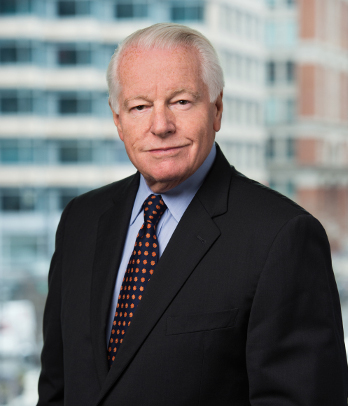Industry in Crisis: Roger Dow Details the Travel Industry Economic and Jobs Impact of COVID-19
See all our coronavirus coverage.
Alarming initial statistics reflecting the massive loss of employment and revenue in the U.S. travel industry in the wake of the COVID-19 pandemic have only gotten worse, according to Roger Dow, president of U.S. Travel Association.
Key statistics include from an Oxford Economics study commissioned by U.S. Travel Association include:
- The economic impact on the travel industry from COVID-19 will be nine times greater than 9/11.
- By the end of April declines in travel will cause 8 million jobs to be lost out of approximately 24 million for the entire U.S. economy—a third of all the jobs lost in the U.S.
- Travel spending losses are on track to top half a trillion dollars by the end of 2020.
- 90% of travelers surveyed had some type of travel or travel-related activity planned prior to the COVID-19 outbreak and 80% of those either canceled or postponed those plans, according to survey data from MMGY Travel Intelligence.
U.S. Travel has made available a 14-page “The Impact of COVID-19 on the United States Travel Economy” report that further details the current situation and offers predictions for the future.
Meetings Today interviewed Dow on the troubling new numbers, as well as U.S. Travel Association and travel industry lobbying efforts with the Trump administration to obtain financial relief from the U.S. government, and his predictions for how and when the crisis for the travel industry will subside. Listen below.
Also available on iTunes, Google Play and Pocket Casts.



Rather read the transcript?
[Start Transcript]
Tyler Davidson: Hello, and welcome to this Meetings Today Podcast. I'm Tyler Davidson, vice president and chief content director with Meetings Today. Thank you for joining us. We're here with Roger Dow today, the President and CEO of U.S. Travel Association. Thanks for joining us, Roger.
Roger Dow: Great to be with you, Tyler. Thank you very much.
Tyler: I know you're on the president's Industry Recovery Task Force, and you actually met with the president and key administration officials on March 17, and the numbers that were presented at that point were, I have to say, very depressing about the job losses in the travel industry. And it really seems like the outlook has not gotten better since.
Roger: Tyler, I would have liked to have the numbers that we presented on March 17 to the president, because they've gotten far worse. When we met with him on March 17 we were talking about 4 million lodging and travel unemployed. It's now 8 million.
Tyler: That's amazing. And I know one sort of alarming statistic that U.S. Travel Association put out, and which everyone can kind of immediately relate to, is that you expect the impact of this to be nine times worse than 9/11’s impact.
Photo: Roger Dow, President and CEO of U.S. Travel Association
 Roger: There's no question about it; 9/11 was a terrible thing for the economy and the travel economy. In fact, the travel economy came to its knees in one hour, but we were able to recover and it was localized, and was one instance. This is a rolling uncertainty different in different areas of the country and the world. And that big word—uncertainty—is the challenge we're dealing with right now.
Roger: There's no question about it; 9/11 was a terrible thing for the economy and the travel economy. In fact, the travel economy came to its knees in one hour, but we were able to recover and it was localized, and was one instance. This is a rolling uncertainty different in different areas of the country and the world. And that big word—uncertainty—is the challenge we're dealing with right now.
Tyler: Yeah, you know, some other numbers that U.S. Travel Association put out was more than a half a trillion lost in travel spending by the year end, which is 45% below 2019. And is there any other—you know, I hate to be very depressing with everyone listening to this right now—but what are some of the other key statistics and figures that you're seeing out there?
Roger: Well, the key, again, goes back to unemployment, because the travel industry is so labor intensive. When you take a factory of the same size as a hotel, that factory might need 30 people to run it and that hotel needs about 400 people to run it all—all the bellmen, that waiters, the waitresses, etc.
So, we're so much more labor intensive. The travel industry makes up 3% of the nation's GDP, yet of the unemployed right now, 8 million of the 22 million unemployed as of today, that's 36% of them. So when you think of it, 3% of the GDP, but yet over two-thirds of the unemployed come from one specific sector.
[Related: Travel Industry Suffering Catastrophic Coronavirus Losses]
Tyler: Yeah, that is amazing. And I know it really kind of percolates through the rest of the industry, too. If hotels have a low occupancy rate, or just a dismal occupancy rate, in this case, they're not making revenue. And then that revenue in many cases, according to most DMO funding models, is not going to the DMO. And so there's repercussions beyond just what people might think of as sort of the frontline workers.
Roger: Right. And you pointed out something that's important to understand is the DMOS—for everyone in the audience, destination marketing organizations, the convention and visitors bureaus, of which there are probably 700 of them in the United States—convention and visitors bureaus’ whole job is to get more people traveling to a city or a state, for leisure, for business travel, and to book big conventions.
Those folks are totally out of business, because the convention and visitors bureaus—the majority of them, I would say 99%--are funded by a portion of the hotel tax and a portion of the rental car tax. That's what funds them.
So those two revenue sources have gone from what could—California, $125 million a year, Las Vegas, $270 million a year. In many other markets $20 [million] to $30 million year—has gone to zero. So the DMOs, or convention and visitors bureaus, have been forced to lay off a high majority of their staff.
And then one other bad factor is in the PPP, which is the Payment Protection Program. They were covered in that and they're nonprofit. But at the very last minute—and this is where politics comes in—some politician said, “Let's not make any money go to nonprofit organizations.” So in the process where everybody else is at least being kept somewhat whole, the DMOs, or convention and visitors bureaus, their people—they're totally wiped out.
It's one of the craziest things I've ever seen. And we're working very hard to get that corrected.
Tyler: Can you explain a little more about your efforts in working with the administration during the crisis?
Roger: Yeah. We've been working with the administration from the get-go. We have a very good relationship with the administration, and as we mentioned earlier, on March 17 I met with the president, vice president and Secretary of Commerce Wilbur Ross. Along with me were seven CEOs from the largest hotel companies and two executives from theme parks.
And the purpose our meeting was to point out, number-one—which they intuitively know, and the president, of course, has a travel business himself—but how adversely impacted the travel industry was, and will be.
And to show the size and the scope, and also to get them to understand that when the travel industry stops, it's just not about you and I going on vacation, or a business trip or a meeting, everything else in the economy is linked to it, whether someone goes and buys a second home, whether someone goes to decide what university their child's going to go to, when someone opens a new business—everything is linked to travel and tourism.
So when travel and tourism stops, the rest of the economy stops. And that's what we're seeing happening.
[Related Webinar: Panel Discussion: COVID-19 and the Meetings Industry]
Tyler: And I know, having covered this industry for a while—and really kind of the genesis of the U.S. Travel Association, back in the Great Recession—it really seems there's kind of always a disconnect between Congress really understanding what the travel industry is all about. And I think—this could be incorrect now or inaccurate—but I think it generates more revenue in GDP terms than the automotive industry even.
Roger: It's bigger than the automotive industry. It's bigger than the chemical and financial services industries combined. Let’s put it in perspective: 1 in 10 employees in the U.S., 1 and 10—10%—get their job through travel and tourism, for $2.5 trillion.
And the misunderstanding that happens with Congress is we're often seen as the fun people—'Oh, they're not serious like manufacturing, healthcare, financial services’— we’re seen as the fun vacation people. But we're serious when it comes to business and employing people as in any industry in America.
Tyler: Yeah, and I know even covering everything during the coronavirus crisis. There are so many ancillary jobs. People, of course, that are taxi drivers, other transportation people, people cleaning rooms. I even did a story on people working in the live events industry who have just been decimated along with people in the meetings industry.
So, you know, I think getting that message out to Congress is probably always going to be a challenge. You know, I guess is that U.S. Travel’s kind of ongoing priority and, and how is how has US. Travel’s priorities perhaps shifted or been reconfigured or emphasized today?
Roger: It's our constant priority, Number one, with Congress, you've got a constant reeducation process. You get a congressperson who's elected every two years—let's say someone from Nebraska and they don't understand the travel industry—so we have a constant role of educating folks about the importance of the link to the economy, and showing them how important this industry is.
And when you go back to it, our world has changed phenomenally. If you were having me on this podcast in January and you asked me, ‘What are our priorities?’ I'd be saying, getting more than the 80 million visitors from around the world coming to the United States; getting more visa waiver countries; getting our infrastructure fixed so people can travel on roads more quickly. I'd be talking about those things.
Because we came off 10 years from the Great Recession of the greatest growth ever, of the travel industry. Every month has been better than the month before for 120 straight months. I had no idea on January 1 that we'd be facing complete decimation we are facing right now, and so our priorities are now changed from growing the industry to surviving.
Tyler: And that's—that's a very, very stark statement. But, I guess you can't really overplay what's going on in the industry right now.
[Related: What Will Hotels and Conferences Look Like Post COVID-19?]
Roger: But the other thing, Tyler—you know this very well, because you cover the industry quite closely— but people think the industry is all the big organizations; they think of United and American Airlines, Marriott and Hilton, Disney and Universal, but we're really made up of small businesses—83% of the businesses in travel.
And all you have to do is stand on the back loading dock of a hotel for one day and you will see car after truck after truck of people with small businesses—cake makers, sign makers, entertainers, all coming in—because this travel industry is made up of small businesses, and these are people that have bet their lives on their businesses, and they don't have the wherewithal that these large organizations have to hang on.
Many of them are going to go out of business and may not be able to recover, and it's so sad. It breaks my heart.
Tyler: Yeah, me too. What can you say about the government helping some of those people? What are you seeing right now? And what are you advocating for? And what do you hope to see happen in the near future as far as support for folks like that?
Roger: The government stepped up and I have to applaud them. They stepped up very quickly.
That meeting we had on March 17, at the White House—10 days later, the $2 trillion package was passed. People said, ‘Wow, that's big. That ought to be enough.’
Just yesterday, they had to replenish it because it ran out of money by another $470 billion. So that's important.
One of the things we're working on very hard is to make sure they can cut through bureaucracy and get the money to the people who need it more quickly. You're hearing stories about people having trouble getting through to unemployment or getting through to the small business and/or to their bank.
Beyond that, I think once we get the people protected—so they can eat and pay their rent, and so businesses can keep the light on—then I think the job of the government—we can work together with them—is to figure out how do we get this thing back sooner? How do we shrink the recovery time, because people aren't going to travel? They're afraid. It’s uncertain.
And until they know that it's safe from health sources, government and the industry, and all the steps we're taking, that's when it will begin. So I think government has a huge job to help us recover, because if travel recovers, the rest of the economy will quickly follow.
Tyler: And, this is sort of, I guess, an unfair question, but get out your crystal ball. Everyone wants to know, when are people going to travel again? When do you think this crisis will subside? And I know you don't have the answer to that. But do you have any thoughts?
[Related: Case Study: 5 Pandemic Safety Tips for High-Level Summits]
Roger: I do. I think, number one, it's going to come back not all at once—at one moment, not everyone will say, ‘Oh, glad that's behind us. Let's start traveling and meeting again’—it's going to come back slowly. It's going to come back regionally.
So people are going to look at parts of the country where, like right now if you want to go to, you know, South Dakota, Oklahoma—there is no problem there. You could go today. But the bottom line, other areas are a little more impacted. So it's going to come back regionally.
The other thing that's going to happen is domestic travel is going to be the backbone. Americans are going to travel around America. For the next year, or at least six months, no American is going to say, I want to go to Italy or I want to go to Spain or Portugal; they're going to want to stay home and they're so cooped up—the demand will come back. So I see it starting to come back a little bit in June, more in July, and then starting August, September, we'll start seeing it come back.
But most important is going to be the protocols that we put place that people say, ‘I got it,’—people like Tyler and Roger will get on a plane and travel, but our neighbors are going be waiting to see how was it and you're gonna say, ‘Fine, I had no problem.’ Then they're gonna venture out.
So it's going to come back slowly. I'm hoping for a stronger fall, obviously, and then a good 2021. Because I think this thing can come back very strongly, but it's going to take a lot of factors to convince people it's safe and good to get on a plane, go to a hotel, go to a theme park and go to a meeting.
Tyler: Well, great. Thank you for joining us today, Roger. And thank you for representing the industry so well.
Roger: Well, thank you, Tyler. You make it easy. You understand our business more than most. So I sure appreciate it. Always a pleasure speaking with you,
Tyler: Likewise. And that was Roger Dow, president and CEO of U.S. Travel Association. Thanks, Roger for joining us, and thank you out there for listening to this Meetings Today Podcast wherever you are—I guess maybe sheltering in place like I am here in San Francisco—make it the best day you can, and we hope to all see each other on the road soon.
[End of transcription.]
Read next: Wynn Las Vegas Unveils Health Plan, Vegas Strip to Slowly Reopen




